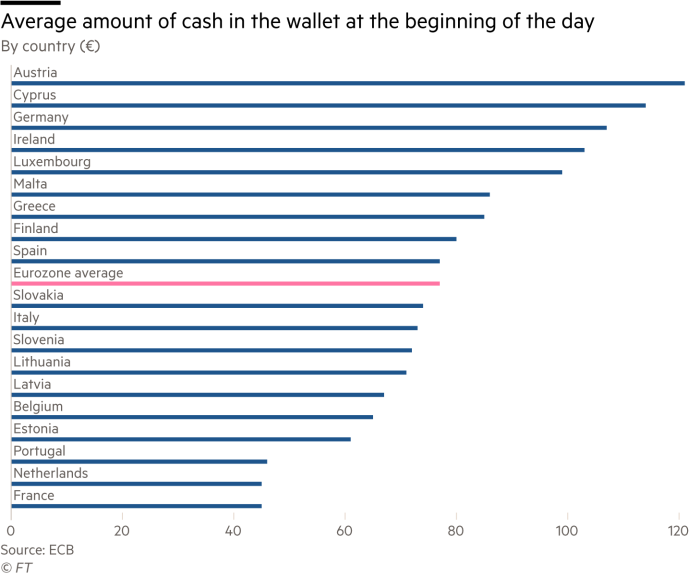[ad_1]
The governor of the central bank, who oversees the development of the digital euro, stated that the introduction of the digital euro will improve consumer privacy and protect the euro zone from the “threat” of competing cryptocurrencies, which may undermine the currency sovereignty of the euro zone.
Fabio Panetta, a member of the Executive Board of the European Central Bank, told the Financial Times that one of the main goals of the project is to combat the spread of digital currencies created by other countries and companies.
“If the central bank participates in digital payments, privacy will be better protected… because we are not like private companies,” he said. “We have no commercial interest in storing, managing, let alone misusing user data.”
“Of course, other people who issue digital payment methods may face potential threats… If people really want to pay digitally and we don’t provide them with digital payment methods [else] Would do that. “
He compared the digital euro (an electronic version of cash issued by the central bank) with “unstable coins” such as Facebook’s Diem. The planned digital currency This will allow users to send money as easily as sending text messages.
The European Central Bank recently advisory On the digital euro, what people care most about is that it will Erodes their privacyBut Panetta said the central bank has tested ways to separate people’s identities from their payment details. “The payment will go through, but no one in the payment chain will have access to all the information,” he said.
He said that the central bank has also tested “small offline payments, without recording any data outside the wallets of the payer and the payee”; using the Bluetooth link between the devices can complete transfers of up to 70 euros or 100 euros.
“For very small amounts, we can allow truly anonymous payments, but in general, confidentiality and privacy are different from anonymity,” Panetta said, adding that most transactions require some checks to avoid money laundering , Terrorist financing or tax evasion.
“Payment can be rebuilt [after the event] If the police want to assess whether there is any illegal activity,” he said.
Nearly two-thirds of the world’s central banks are conducting actual experiments on whether to launch digital currencies. Bank for International Settlements.
But commercial banks are worried Central Bank Digital Currency It may erode their deposits, especially in a crisis. Morgan Stanley estimates that as much as 837 billion euros, or 8% of euro zone bank deposits, may shift to the digital euro.
Some critics believe that it may also squeeze cash. More than half of the German households recently surveyed by the Bundesbank expressed doubts about the digital euro, and those who use cash regularly are the most suspicious.
Panetta said that the digital euro will lead to “fundamental changes in the way payment methods, financial systems and society as a whole operate”, such as through “programmability” to allow automatic payments, such as road tolls or movie theaters.
But he said that the European Central Bank is determined to ensure that the digital euro does not disrupt the commercial banking system, replace cash, crowd out innovation or become a shadow currency for small countries.
Panetta said that in order to achieve this goal, it plans to limit the amount that anyone can hold to 3,000 euros per person, or to impose “suppressive pay” above that threshold.
The Council of the European Central Bank will meet next month to decide whether Advance With preparations, Panetta said it can be ready for use in about five years.
He said that the central bank will also complete a new monitoring framework for private digital currency and encrypted asset providers before the end of this year.

Panetta warned that crypto assets such as Bitcoin are “very dangerous animals” that are “mainly used for criminal activities” and consume “a lot of energy.”
The so-called stablecoins, such as Diem, should be safer because they are backed by fiat currency reserves, but Panetta stated that the potential volatility of these reserves has caused “the inherent instability of the functions of these coins-so they are still Unstable coins”.
He said that it is difficult to supervise and supervise crypto assets “because there is no responsible legal entity.” “It is decentralized. They may be in China. They may be in Switzerland or South America… But if intermediaries are involved in the supply of these encrypted assets, then we will have proper supervision and supervision.”
Panetta said that a limited number of digital euros should be provided to tourists visiting Europe, but the European Central Bank will “must very carefully consider the access rights and limits of foreign users.”
Panetta said that major central banks are negotiating to ensure that their digital currencies remain “interoperable” because this will help “improve the efficiency and cost of cross-border payments.”
[ad_2]
Source link



